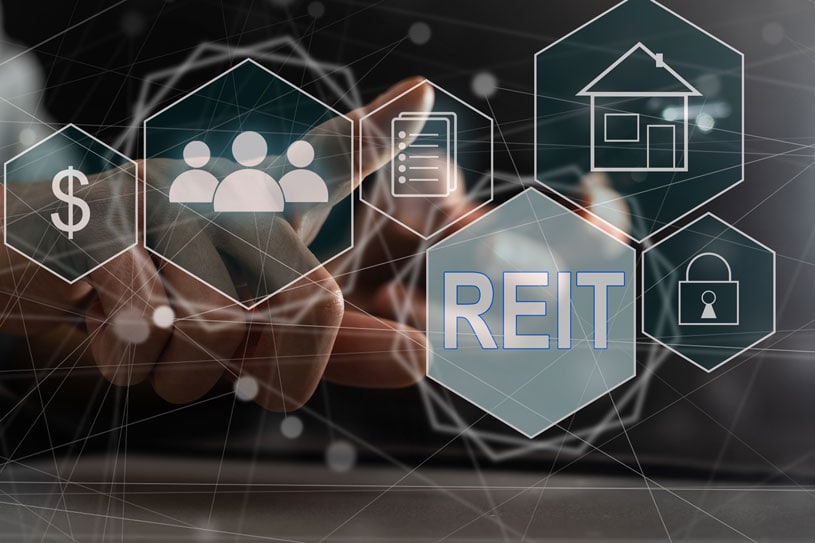The real estate industry is undergoing rapid digital transformation, with MLS (Multiple Listing Service) platforms playing a critical role in data centralization, property marketing, and collaboration. As demand for standardized real estate data and technology increases globally, the concept of franchising MLS platforms to new regions has gained momentum. This article explores how and why MLS platforms can be effectively franchised, the requirements for expansion, and the broader implications for the real estate ecosystem.
Overview
Franchising MLS platforms allows a proven data-sharing model to be replicated across new territories. By licensing MLS technology and branding to regional operators, organizations can scale operational excellence while preserving local customization. The benefits include wider access to real estate data, consistent professional practices, and accelerated innovation.
Real Estate Development World
Developers in emerging and established markets benefit from franchised MLS platforms by gaining access to reliable data. Accurate listings, historical sales, and predictive analytics provided by MLS systems help developers assess investment potential and consumer demand, reducing risk in project planning.
Private Real Estate Networks
Private listing networks often operate in data silos. Franchised MLS platforms can bridge the gap by offering integration tools that aggregate both public and private listings. This enhances market visibility, transaction efficiency, and competitiveness.
Remote Real Estate Work
As remote work becomes more prevalent, digital-first MLS platforms enable agents and clients to collaborate regardless of location. Franchising MLSs extends these capabilities globally, supporting cross-border transactions, remote property tours, and virtual closings.
The MLS Concept
An MLS is a cooperative network that allows real estate professionals to share and access property listings. Franchising the concept involves exporting not only the technology but also the rules, standards, and governance structures that ensure data accuracy, transparency, and professionalism.
Needed Training Courses
To support a successful MLS franchise, regional staff and agents must undergo training in MLS operations, compliance, technology use, and data input standards. Courses can be delivered online or in person and often include best practices from established MLS organizations.
Needed Certifications
Certifications ensure that professionals within the MLS franchise operate at a high level. Common credentials include Certified MLS Administrator (CMLSA), real estate technology certifications, and data governance training. These create trust and standardization across markets.
Onboarding Programs for New Agents
Agents joining a franchised MLS must be introduced to platform navigation, listing protocols, and cooperation policies. Robust onboarding programs accelerate adoption and ensure quality control from day one.
MLS Agent Onboarding Processes
The onboarding process should include technical tutorials, compliance guidelines, listing accuracy training, and customer service expectations. This enables agents to quickly adapt and contribute to the success of the platform.
MLS Platforms
Major MLS platforms like Bright MLS and CoreLogic Matrix provide scalable infrastructures that support franchising. Their modular design allows for localization of language, currency, and legal frameworks while maintaining platform consistency.
Franchising MLS Platforms to Other Regions
Franchising involves extending an MLS platform to a new region under a licensing agreement. This includes technology transfer, training, branding, and ongoing support. The franchisor retains intellectual property and quality control, while the franchisee manages day-to-day operations. This model empowers regions with limited tech infrastructure to launch robust MLS systems quickly, bridging gaps in market transparency and professionalism.

Optimizing MLS
Franchised platforms can incorporate local feedback to optimize MLS features. Iterative development and user engagement ensure the system evolves based on real-world needs. Optimization also includes refining search tools, data visualization, and mobile responsiveness.
Artificial Intelligence
Franchised MLS systems can integrate AI tools to automate property valuations, detect anomalies, and personalize recommendations. Centralized AI modules allow global consistency, while local data training ensures contextual accuracy.
Analytics
Regional franchises can leverage the analytics capabilities of the parent MLS system. Dashboards that track market trends, agent performance, and consumer behavior empower brokers, agents, and investors with actionable insights.
Economic Impact
Franchised MLS platforms stimulate local economies by improving transaction speed, increasing housing accessibility, and supporting real estate startups. They also create jobs in tech, customer service, and real estate education.
Data Quality Management
Maintaining high data quality is essential for MLS franchise success. Validation protocols, contributor scoring, and real-time error detection are standard features transferred from the parent platform to the regional franchise.
Data Security Standards
Franchisees must uphold strict data security measures such as encryption, access control, and breach response plans. Adherence to international standards like ISO 27001 ensures trust and compliance.
Sustainable Development Data
Franchised platforms can integrate green building certifications, energy scores, and transit data. Providing access to sustainable development data empowers buyers and developers to make environmentally conscious decisions.
Personalization Features
Localization of personalization tools, such as property recommendations based on user behavior or lifestyle preferences, enhances user engagement. Franchised MLSs can inherit these features and customize them for regional demographics.
User Experience Design
A consistent, intuitive UX across all franchises is key. Customizable templates, multilingual interfaces, and mobile-first design enhance accessibility and brand unity.
Usability Testing
Regular testing ensures that franchised MLS platforms remain user-friendly. Beta groups, feedback loops, and A/B testing identify issues before full deployment, promoting user satisfaction.
Fix And Flip
Investors benefit from MLS tools that analyze potential flip properties based on price history, market velocity, and neighborhood trends. Franchised systems offer these insights to new markets, supporting small-scale development.
Property Valuation Tools
Automated Valuation Models (AVMs) integrated into franchised platforms offer instant estimates, reducing reliance on manual appraisals. Localization algorithms ensure valuations reflect regional market conditions.
Cross-Promotion Strategies in MLS
MLS franchises can cross-promote with local banks, home inspectors, or renovation services, creating a full-service ecosystem. These partnerships enhance value and stickiness for platform users.
Avoiding Legal Trouble When Wholesaling Properties
Franchised platforms can incorporate legal education tools and compliance filters that flag suspicious activity. This helps prevent violations in wholesaling practices and protects the platform’s reputation.
Leads – Integrating Digital Marketing
Franchised MLS platforms support agents with CRM tools, lead capture forms, and integration with email and social media marketing platforms. These features generate high-quality leads and support conversion.
Machine Learning Models
Franchised platforms can leverage global machine learning engines trained on diverse datasets. These models assist in forecasting trends, detecting fraud, and enhancing user search experiences.
Renewable Energy Integration
As green technology becomes central to real estate, MLS franchises can incorporate renewable energy data such as solar panel installations, energy efficiency ratings, and eco-incentives to attract eco-conscious buyers.
Process Improvement
Franchising introduces opportunities to refine internal workflows such as listing approval, data uploads, and customer service. Parent MLSs can share process blueprints, while regional teams adapt and improve them.
Innovation Hubs
Partnering with tech incubators and universities, franchised MLSs can foster local innovation. These hubs create an ecosystem for app development, AI experimentation, and user interface enhancements.
Review and Reputation Systems
Including agent ratings and consumer reviews within the MLS franchise enhances transparency and accountability. Regional governance ensures that reputation systems are fair and aligned with cultural norms.
Venture Capital Investments
Franchising opens doors for local PropTech startups to tap into a broader ecosystem, making them more attractive to investors. Access to MLS data provides a strong foundation for business development.
Business Model Innovation
Each region may adapt the MLS business model—subscription-based, transaction-based, or freemium—to fit local economic conditions. Flexibility in monetization ensures financial sustainability.
Market Trend Predictive Modeling
Franchised systems can adopt predictive modeling tools to anticipate shifts in pricing, demand, and neighborhood growth. These models guide investors, brokers, and policymakers in strategic planning.
Operational Efficiency Solutions
From task automation to digital contracts, franchised MLSs introduce operational tools that streamline agent workflows and client engagement, reducing friction in the transaction lifecycle.
Professional Development
Ongoing education is crucial. Franchised MLSs can offer continuing education modules, tech workshops, and certification programs, ensuring agent competency and platform mastery.
Frequently Asked Questions
What is MLS franchising?
It’s the process of licensing an MLS platform, brand, and system operations to a new region or country.
Why franchise an MLS?
To rapidly expand access to standardized real estate data and tools without rebuilding infrastructure from scratch.
How is quality controlled?
The franchisor provides ongoing training, platform updates, and compliance audits to ensure consistency.
What are the costs involved?
Franchise fees, infrastructure investments, local staffing, and training programs.
Can franchises customize the platform?
Yes, within guidelines. Language, regulations, and market preferences are often localized.
Franchising MLS platforms to new regions represents a transformative opportunity for the real estate industry. It promotes standardization, empowers agents with modern tools, enhances data transparency, and accelerates innovation across borders. As real estate becomes increasingly global, the expansion of MLS systems through franchising ensures that every market, regardless of its starting point, can participate in the digital future of property transactions.










